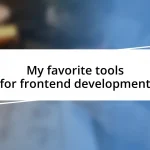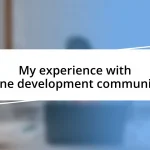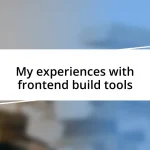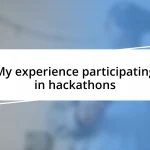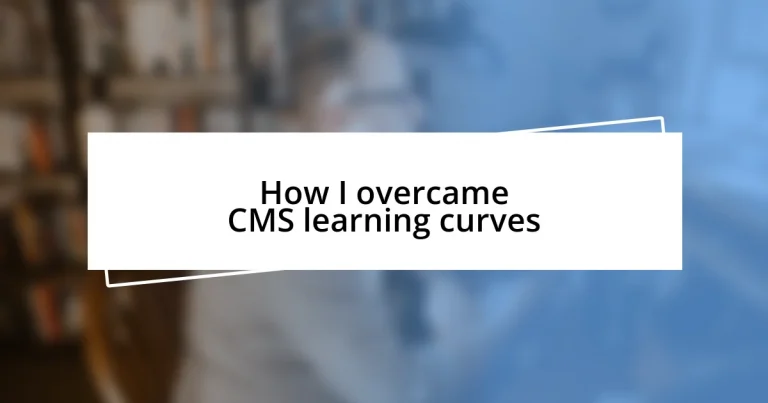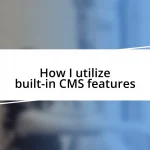Key takeaways:
- Understanding technical jargon and mastering CMS terminology is essential for effective navigation and collaboration.
- Setting realistic learning goals and utilizing resources like online tutorials and communities fosters confidence and enhances understanding.
- Practicing with real projects and tracking progress while adapting strategies leads to valuable insights and improved outcomes.
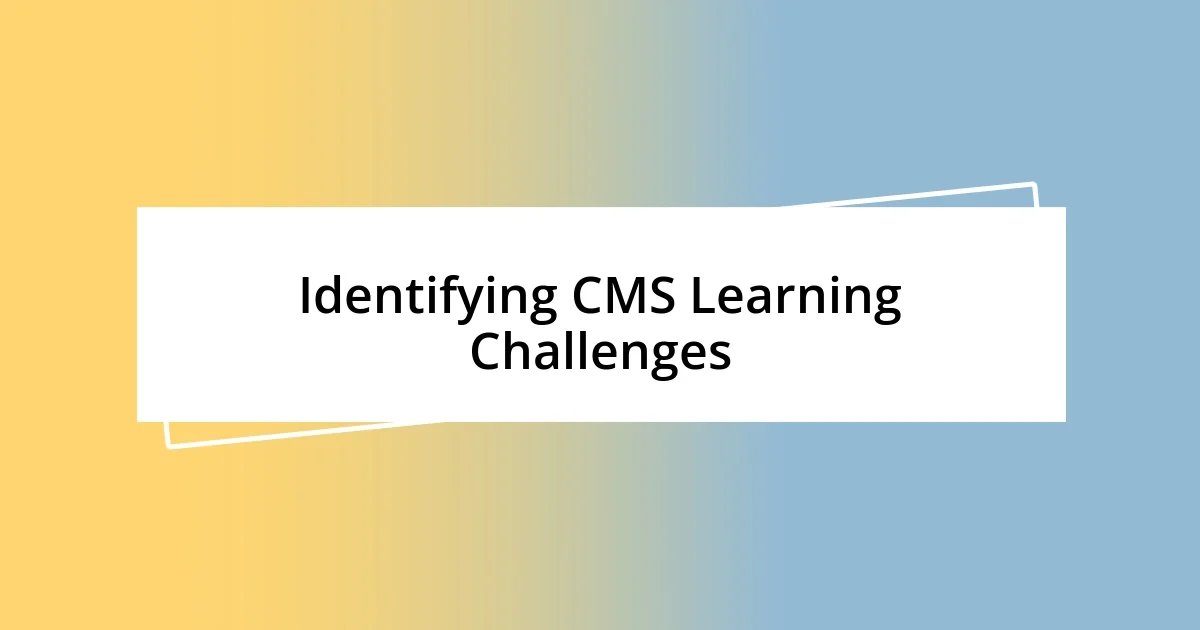
Identifying CMS Learning Challenges
When I first dove into the world of Content Management Systems (CMS), I was overwhelmed by the plethora of options and settings available. Have you ever felt lost in a sea of menus and buttons, wondering where to start? It took me some time to realize that not every CMS is the same; each comes with its unique features and quirks that can trip you up if you’re unprepared.
One of my biggest learning challenges was understanding the technical jargon. Terms like “API,” “SEO,” and “responsive design” felt like an entirely different language! I remember sitting in front of my screen, frustrated, thinking, is this really necessary? But as I slowly familiarized myself with these concepts, it became clear that mastering this language was key to navigating my CMS effectively.
Another hurdle I faced was figuring out the workflow within the system. I will never forget the hours I spent trying to collaborate with my team, only to find out we were all on different pages—literally! Finding a shared understanding of how to use the CMS for our projects made a world of difference in our productivity and performance. It’s like building a bridge with your team; once you’re all connected, moving forward becomes so much smoother.
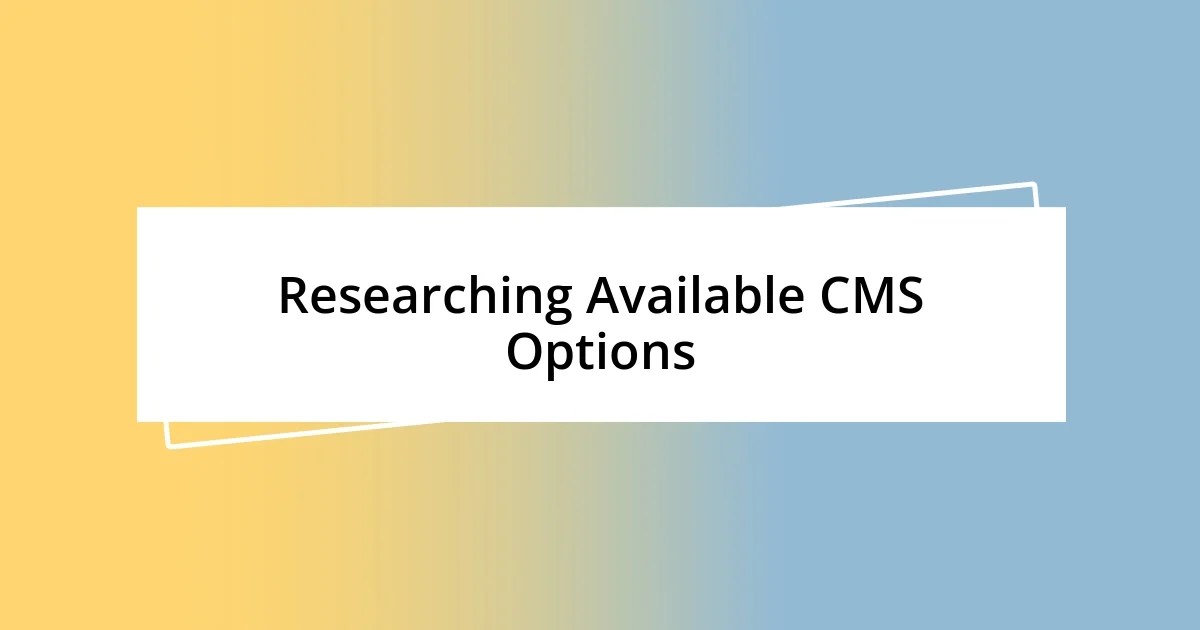
Researching Available CMS Options
Researching available CMS options was like walking through a digital jungle, each path leading to a different set of possibilities. I remember scrolling through countless reviews and comparisons, trying to find the one that felt right for me. It was a bit like online dating—just when I thought I found a match, a red flag would pop up. The best part? I realized that diving into user forums could uncover invaluable insights, helping to gauge not just the features but the community and support behind each CMS.
When comparing various CMS options, consider these critical factors:
- User Interface: Is it intuitive and easy to navigate?
- Customization: How flexible is the design and functionality?
- Support and Community: Are there resources available for troubleshooting?
- Cost: What are the pricing models—monthly, upfront, or freemium?
- Integrations: Does it connect easily with other tools you’re already using?
- Scalability: Can it grow with your needs as your project expands?
Taking the time to research and evaluate these elements not only saved me frustration later on but also empowered me to choose a CMS that genuinely aligned with my objectives and workflow style.
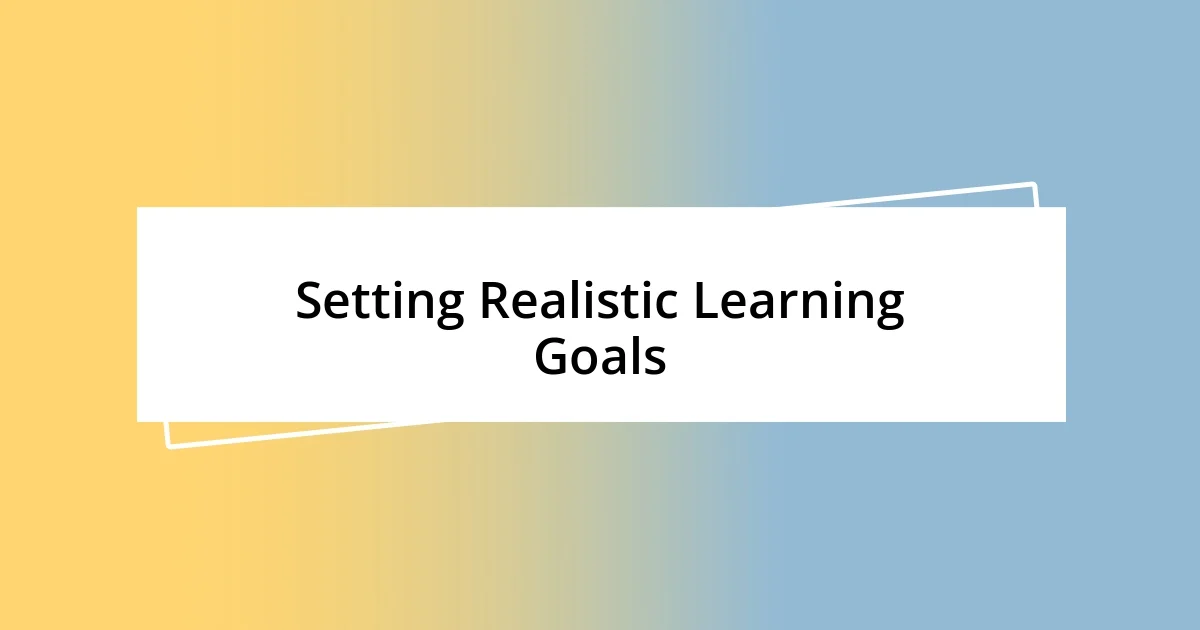
Setting Realistic Learning Goals
Setting realistic learning goals was a game changer for me. Initially, I set out to master my CMS in just a few days, only to realize that overwhelming myself with too much information led to more confusion. I learned to break down my learning into smaller, manageable objectives—like mastering one feature at a time. This way, I could celebrate small victories, boosting my confidence along the way.
Keeping track of my progress became essential, too. I created a simple checklist of the skills I wanted to acquire, marking off each one when I felt comfortable. This not only provided me with a tangible sense of accomplishment but also highlighted areas where I still needed to focus. Have you ever felt that surge of satisfaction after checking off a task? It’s invigorating! Each small achievement kept me motivated and on track.
Setting these goals also encouraged me to seek help when needed. I remember being stuck on a particularly tricky aspect of customizing my website’s layout. Instead of letting frustration take over, I acknowledged that I didn’t have to tackle every challenge alone. I reached out to online communities and even found a local meetup group focused on CMS learning. Getting that support transformed what felt like an insurmountable task into a shared journey of discovery.
| Learning Goals | Outcome |
|---|---|
| Master one feature at a time | Increased confidence and reduced overwhelm |
| Create a checklist | Tangible sense of accomplishment |
| Seek help from communities | Shared journey and enhanced understanding |
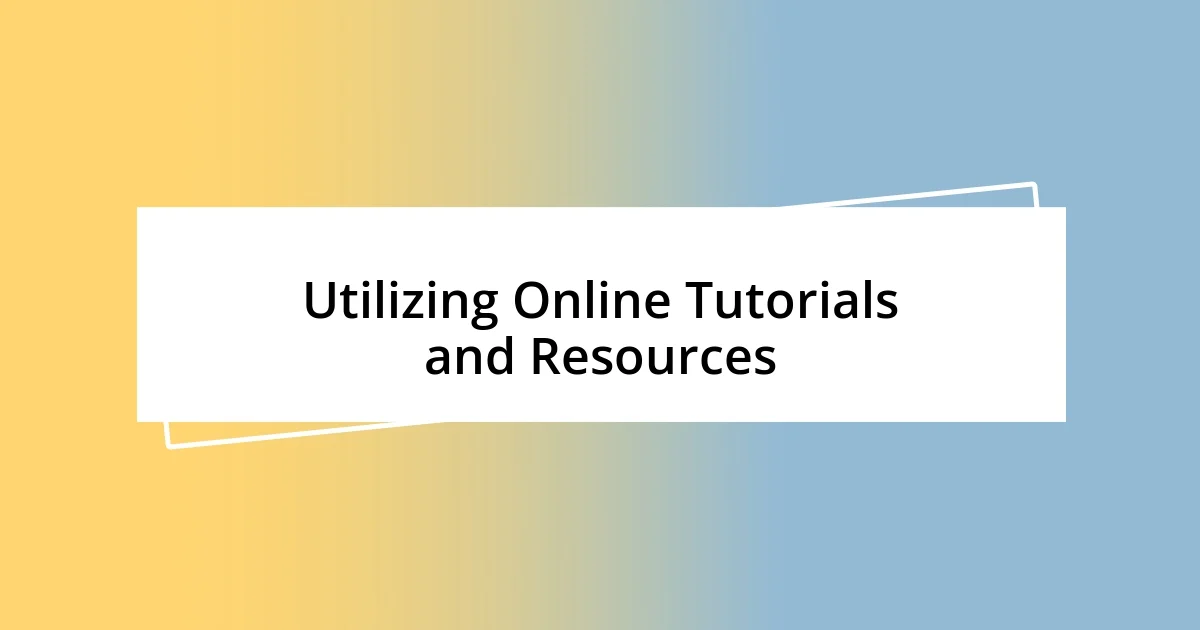
Utilizing Online Tutorials and Resources
Utilizing online tutorials and resources became my lifeline when I was grappling with the intricacies of my chosen CMS. I vividly recall stumbling across a YouTube channel dedicated to walkthroughs and practical tips. Each video felt like a friendly face guiding me through the maze, making things simpler and more digestible. Have you ever found yourself glued to a tutorial because it just clicked? That’s what happened to me, and it made all the difference.
In addition to video tutorials, I dove into various online forums and community pages. Engaging with fellow learners provided me with a sense of camaraderie. I remember posting a question about a specific feature and, to my surprise, received a flood of responses from users eager to share their experiences. This gave me not only immediate answers but also built confidence in reaching out for help. It’s astonishing how much support is out there if you’re willing to seek it!
I also discovered that interactive resources, like quizzes or hands-on projects, played a pivotal role in solidifying my learning. For instance, when I encountered a quiz testing my knowledge of content management principles, I was amazed at how much I retained through that active engagement. I often found myself thinking, “Oh, I didn’t realize I remembered that!” Learning in a way that was both fun and practical kept me motivated, and who wouldn’t prefer that over a dry textbook approach?
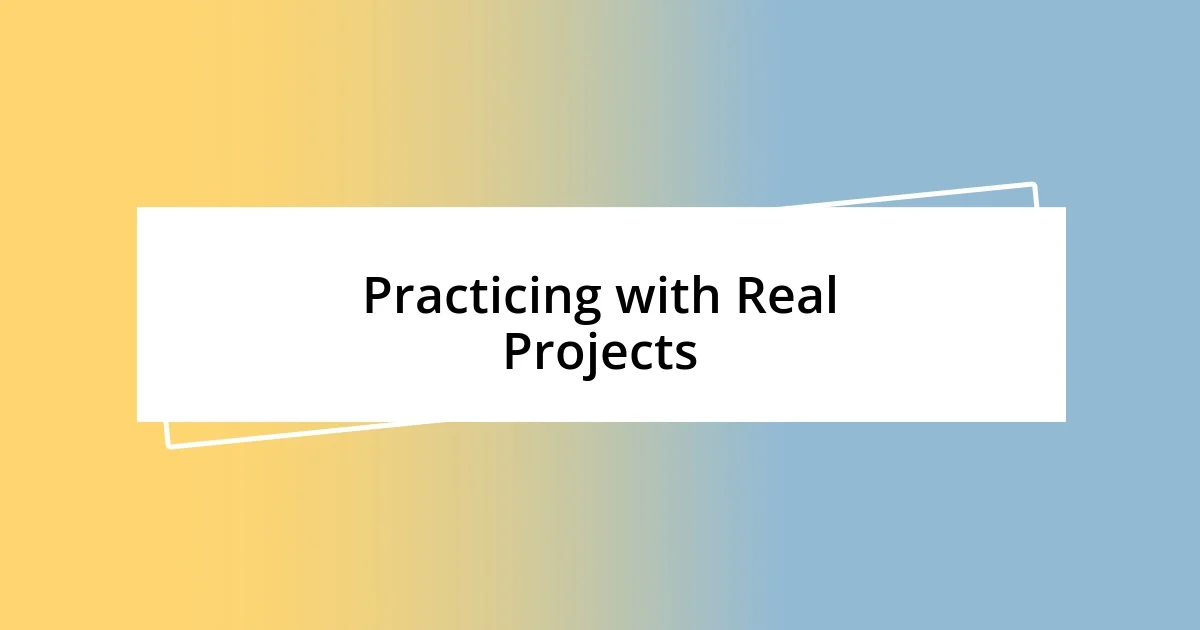
Practicing with Real Projects
Getting my hands dirty with real projects was one of the most effective ways I learned to navigate the CMS landscape. I remember diving into a personal blog project that I had been dreaming about for ages. Suddenly, what seemed like a daunting CMS transformed into a powerful tool as I experimented with different themes and layouts. Have you ever felt that thrill of turning a blank page into something uniquely yours? That excitement fueled my desire to explore more features and functionalities.
As I started building my blog, I encountered challenges that textbooks couldn’t prepare me for. For instance, when I struggled with embedding a video, I realized I could only learn so much from tutorials. It was the hands-on experience—the trial and error—that truly cemented my understanding. Each misstep turned into a valuable lesson. What surprised me most was how those “aha” moments, when things finally clicked, felt like my personal victories.
Working on a real project also pushed me to seek out additional resources when I hit a roadblock. Once, I spent hours trying to troubleshoot a plugin issue. Frustrated, I reached out to an online group where I found others who’d faced the same challenges. Their encouragement reminded me that I wasn’t alone in this journey. Have you ever found support when you least expected it? Those interactions not only provided the solutions I needed but also reinforced the sense of community that made my learning experience richer.
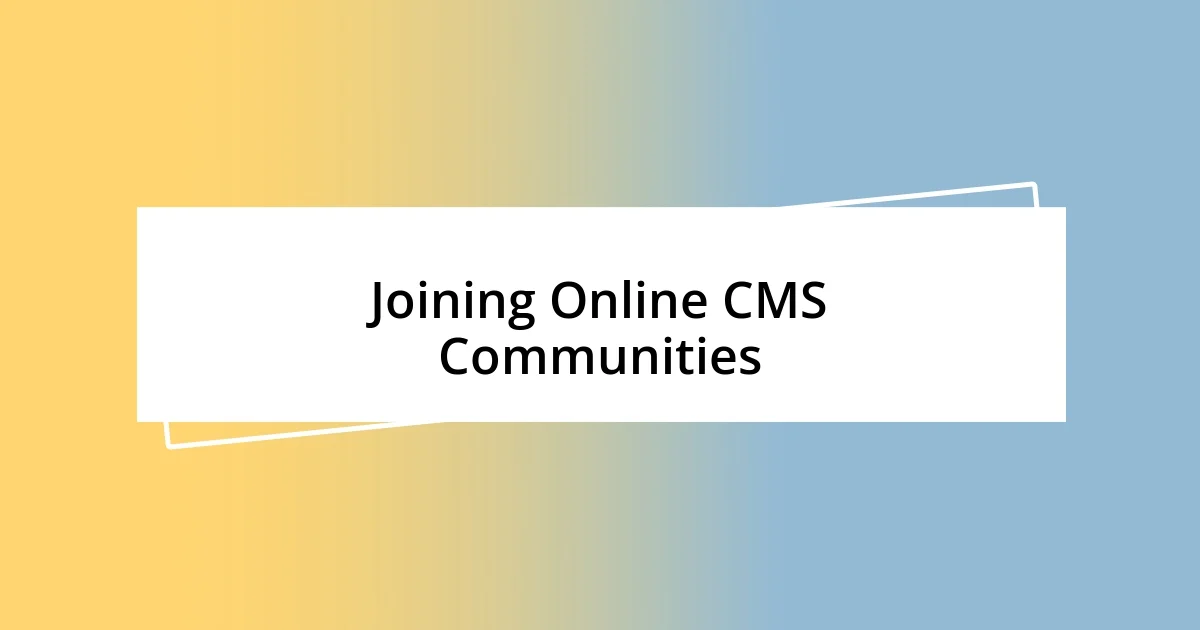
Joining Online CMS Communities
Joining online CMS communities was a game changer for me. I remember scrolling through various forums, and suddenly, it felt like stepping into a bustling coffee shop full of individuals eager to share their knowledge. Have you ever found that perfect group where everyone speaks your language? That was my experience, and it made all the difference. The camaraderie and support were invigorating; it felt less like a learning curve and more like a climb with friends by my side.
One evening, as I settled in with a cup of tea, I decided to introduce myself in a community dedicated to my CMS. I shared my struggles with customizing templates and, within moments, people began responding with their tips and tricks. I felt an instant connection as I read their stories and experiences. It was empowering to realize that others had faced similar hurdles, and there was a network of support ready to lift you up when you needed it most. Have you ever shared a struggle only to find out you’re not alone? That community response was not just comforting; it also reignited my motivation.
Participating in discussions and asking questions truly accelerated my learning. I remember one user shared a resource that transformed my understanding of SEO in CMS—a concept that initially baffled me. Their willingness to help, coupled with my newfound knowledge, was like a light bulb moment. The encouragement I received reminded me that, even in the vast expanse of the internet, there are places filled with individuals who genuinely want to help. Isn’t it reassuring to know that with just a few clicks, you can connect with people who share your passion?
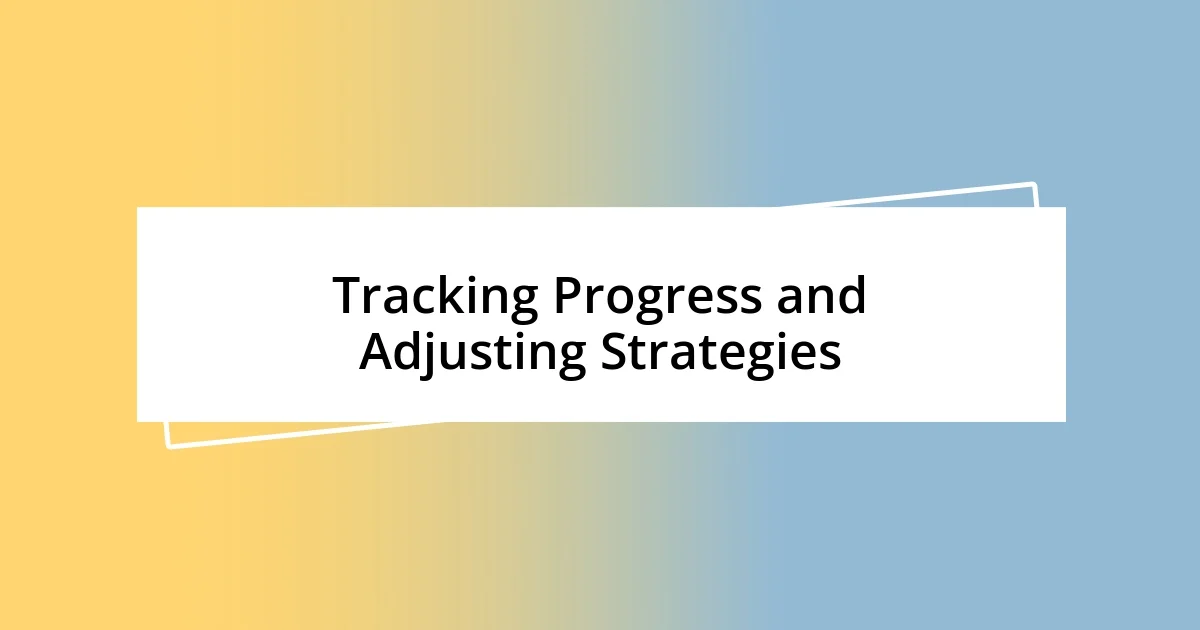
Tracking Progress and Adjusting Strategies
Tracking my progress became an essential part of my CMS journey. I began by setting small, attainable goals—like mastering a particular feature each week. This strategy transformed daunting tasks into manageable steps, and I eagerly celebrated each milestone. Have you ever marked your progress in a way that made the journey feel more rewarding? I found that keeping a simple journal of my achievements not only motivated me but also highlighted areas needing improvement.
Adjusting my strategies was another crucial aspect of this process. After a few months, I noticed certain methods weren’t yielding the expected results. For instance, I struggled with user engagement on my blog despite my initial excitement. So, I revisited my content strategy, experimenting with different types of posts, from tutorials to personal stories. This adaptability taught me that flexibility often leads to breakthroughs. Have you ever revisited a strategy only to discover a hidden path to success?
One memorable moment was when I pivoted my approach based on feedback from my CMS community. After sharing an article that didn’t resonate well, a few members highlighted ways to enhance my writing style. Their insights encouraged me to refine my content. I realized that tracking not just personal progress but also community feedback is vital for growth. Isn’t it fascinating how collaboration and mutual support can elevate your learning experience?
